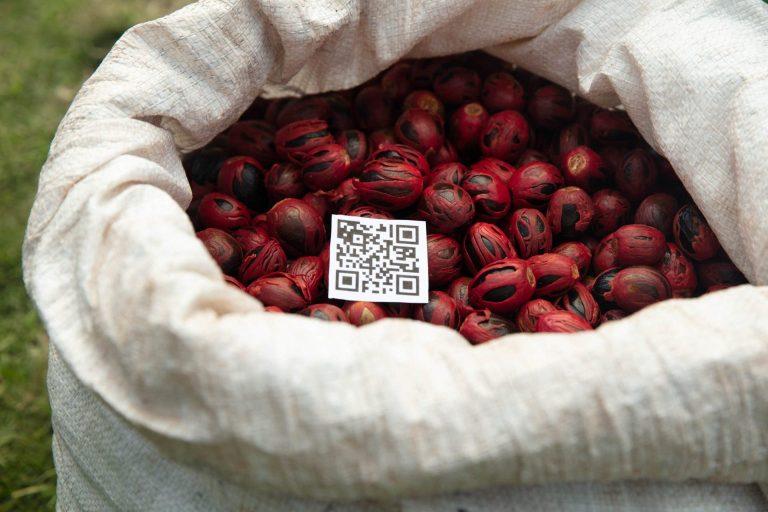Cisco: Transforming Sustainable Food Systems Through Transparency and Digital Inclusion
By Noel Burke
Published 09-21-23
Submitted by Cisco Systems, Inc.

The Transformational Tech series highlights Cisco’s grant recipients that use technology to help transform the lives of individuals and communities. This blog features Cisco’s partnership with Fairfood, a non-governmental organization (NGO) based in the Netherlands. If you are interested in a deep dive on this partnership, please contact Sue-Lynn Hinson.
New research by the United Nations Food and Agriculture Organization shows that the world’s nearly 500 million smallholder farmers produce around one third of the world’s food supply. Yet many of them live on less than USD $2 per day and can barely feed and sustain their own families. Fair and ethical business practices are a rising concern among consumers; yet many agri-food companies struggle to build brand trust and prove that they are operating sustainably, treating farmers and food workers ethically and paying them a living income.
Fairfood has developed a blockchain-based technology platform called Trace with support from Cisco. Trace enables full transparency across the food supply chain, and provides data, evidence, and insights with which companies can develop programs and strategies to implement ethical business practices and improve the lives and livelihoods of smallholder farmers and food workers.
“The relationship between the buyer and the producer, to me, is the most important. It is
good to have this transparency inside the cooperative; to be able to show what we are
doing with the coffee, every step of the process. It helps build strong and dependable
relationships with buyers.”
—José Francisco Villada (Panchito), Coffee producer and co-founder of Capucas
Fairfood’s mission is to accelerate change towards fair and sustainable food value chains, partnering with agri-food companies to develop innovative business models that benefit companies and cooperatives and enable fair value distribution models that lead to higher incomes for smallholder farmers. Currently connecting more than 300,000 people (farmers, workers and their family members) to the domestic and international supply chains that shape their future, Fairfood’s global operations span 17 countries and diverse commodities related to the cocoa, coffee, spice, horticultural and fruit industries.
Fairfood’s partnership director, Peter van der Linde, shares the non-profit’s technology evolution and how its partnership with Cisco has helped it make significant advancements in digital inclusion while protecting data privacy and security and giving smallholder farmers control over their own digital information.
What role does technology play in Fairfood’s mission?
Technology and digital inclusion are key. Having technology that can help securely trace the product from farmer to consumer, end to end, is invaluable to bringing positive change to fair and ethical food sustainability, building brand trust among consumers through supply chain transparency, and helping us scale to market. Getting everyone on board, from the farmers to the cooperatives, to the brands, retailers, and consumers, is vital to creating real change.
Fairfood adopts a partnership value chain approach to traceability, forming data partnerships along international food corridors that benefit all parties, with a strong focus on strengthening the position of farmers as a key part of sustainability strategies. Fairfood’s approach is unique because it is focused on system change and centered on both product traceability and publicly verifiable brand promises that can be linked to individual products that add tangible value in the commercial market and help to build consumer trust. And the technical infrastructure that is backed by the partnership with Cisco is essential.
How has the support of Cisco contributed to Fairfood’s technology development and how critical has this been in advancing your strategy?
With the support of Cisco, Fairfood has strengthened its farmer-centric traceability solution that currently allows 46 companies to show exactly where products come from and share evidence for brand promises publicly, while improving farmers’ incomes. The partnership also allowed us to develop a data-secure NFC (Near Field Communication) card system in combination with a mobile app for first buyers, that enables the development of financial track records for farmers and community members who do not have a phone or a bank account. It is used to securely digitize proof of cash payments offline, ensuring financial transactions can only be verified by the authorized users.
In the markets Fairfood operates in, this concept shifts the power back to farmers and community members, allowing them to verify that payments intended for them are received, while ensuring they remain in control of their own data. It also opens up the possibility to use these records for financial inclusion for farmers that do not have a bank account. “We are exploring ways in which these digital financial track records can be used for credit scoring to help secure basic loans for these farmers that were previously out of scope. It’s a massive opportunity with a lot of potential and benefit to both the unbanked farmers and financial institutions”.
What are some of Fairfood’s accomplishments/wins in the industry to date?
Fairfood has a goal to improve the livelihoods of one million people by 2025. One of the ways we are making strides to achieve this goal is through novel business models. In 2022, Fairfood implemented its farmer-centric traceability solution with Verstegen Spices in their nutmeg supply chain from Indonesia, with a new incentive structure wherein farmers are paid a premium for top-quality product, and additionally compensated for providing digital verification of payments received. The program had two pathways of change: one aimed at demonstrating the business case for fully traceable nutmeg products, and the other focused on showcasing the potential of incentives to help structurally increase payments to farmers. The case got highlighted in the report ‘Towards a New Paradigm’ commissioned by USAID (DDI) and the Gates Foundation.
Watch a short video about the program.
The report highlights that after the initial hybrid financing model (public-private), key parties in the value chain are willing to continue to cover the running costs of the app/card system and sustain payments for both quality and data premiums. Farmer verified transaction records show that the quality and data premiums continued to result in an approximately $100 increase in income per farmer per year during the first year after implementation (March 2022 – March 2023).
Learn how Trace is enabling full transparency for the supply chain.
What challenges/roadblocks does Fairfood still face?
One of the biggest challenges Fairfood faces is to prove the business case for fully traceable products, instead of the market depending on current sustainability labels. We know that some of these labels can be misleading, and many do not prove that farmers are being paid fairly (despite consumers thinking that is what these labels mean). So, bringing our farmer-centric traceability system and approaches to the forefront is key to making real change towards sustainable and ethical food supply chains, consumer awareness, and brand trust. It takes time for people to really understand the power of farm-to-fork traceability, but we are beginning to make inroads.
Another challenge is with legislation. Up until a few years ago, there was a lack of legislation around ethical and sustainable supply chains. We are now seeing positive change in this area across governments in several countries and this is helping us to pick up steam in companies where sustainability was not previously mission-critical to them. A final roadblock area is the lack of data, and this is where we are partnering with our cooperatives to help them to digitize paper-based processes, for example enhancing their farmer lists and by supporting them with means to digitize transaction records using our app and card system. Sometimes it is starting from scratch, but as we collect data through the Trace platform, we can facilitate real change throughout the supply chain and help to make sure that farmers are paid fairly for their products.
How can consumers help Fairfood’s mission?
There are multiple ways consumers can help with Fairfood’s mission towards a sustainable food system.
- Education: Learn about what companies are supporting ethical and sustainable food practices. Being an informed, responsible consumer can help to influence the system as a whole and lead to real, actionable change. Visit the Fairfood website for more information.
- Enjoy coding? Get involved: For the tech-savvy, one way to get involved is to possibly help Fairfood through open-source software contributions. Reach out to Derek at, derek@fairfood.org for more details on how you can contribute on Trace mobile.
- Connect Fairfood to future partnerships: Know of any local companies interested in bringing fully traceable products to consumers? Reach out to Peter at, peter@fairfood.org.
View original content here.

Cisco Systems, Inc.
Cisco Systems, Inc.
About Cisco
Cisco (NASDAQ: CSCO) is the worldwide leader in technology that powers the internet. Cisco inspires new possibilities by reimagining your applications, securing your data, transforming your infrastructure, and empowering your teams for a global and inclusive future. Discover more on The Network and follow us on Twitter.
About Cisco's Purpose
Cisco’s purpose is to Power an Inclusive Future for All. From increasing access to skills needed to thrive in a digital economy to supporting the most vulnerable in times of crisis, we’re committed to using our technology for good. Cisco is also leveraging our scale and innovation to help ensure that our increasingly digital future is sustainable, inclusive, and resilient.
More from Cisco Systems, Inc.

